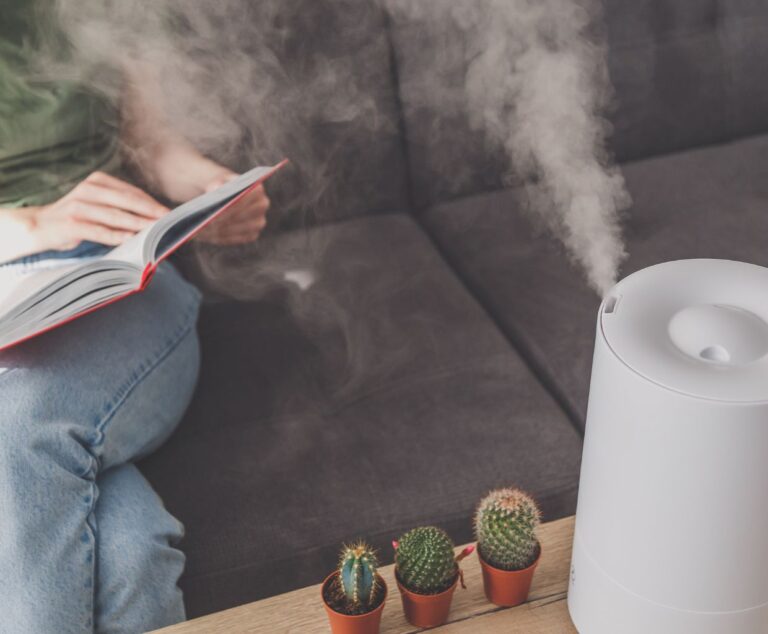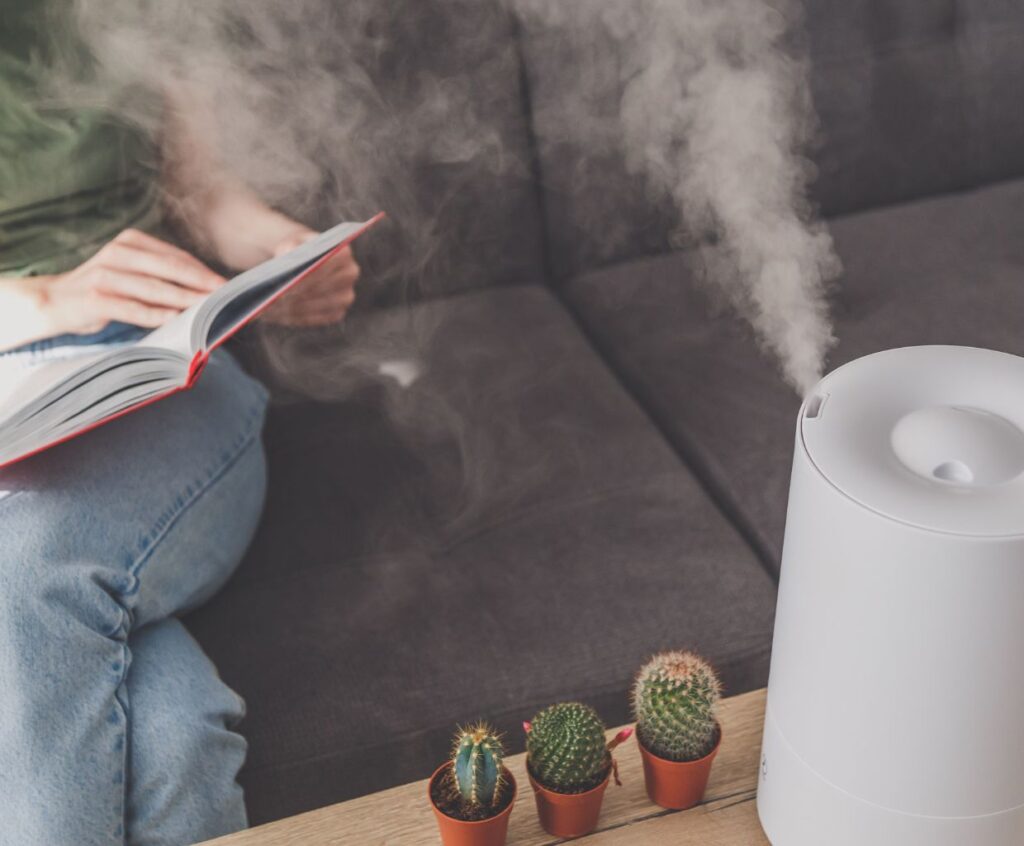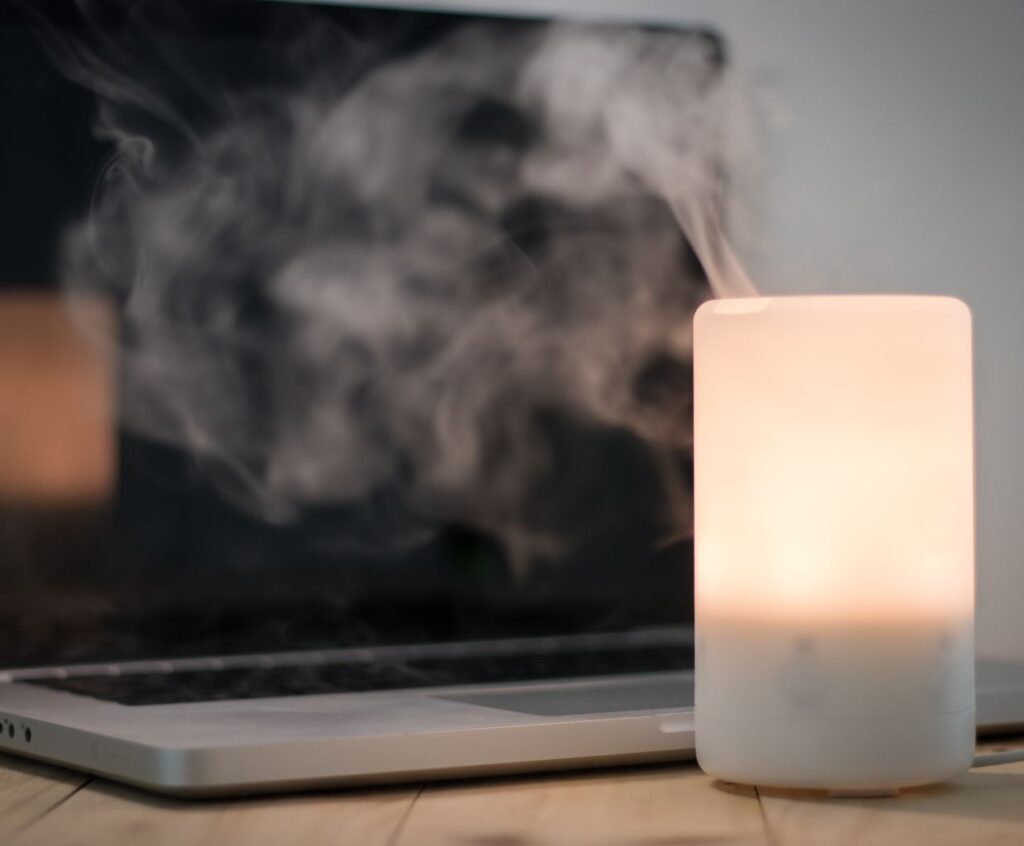Humidifiers are necessary for several reasons, but they can be tricky. Many different types of humidifiers require different amounts of maintenance and energy, so you’ll want to ensure you’re using one that’s right for your home and your needs.
If you’re like me, you probably don’t think about humidity much. But if you have allergies or asthma, the climate in your home can significantly affect how well you breathe.
Humidifiers can help relieve symptoms of these conditions by increasing moisture in the air; they also make it easier on your skin (and ours!).
Content Summary
- 1 How long does it take a humidifier to work
- 2 The first thing to check in a new humidifier
- 3 How long does it take for a whole-house humidifier to work
- 4 Humidifiers can improve breathing.
- 5 Types of humidifiers
- 6 Humidifiers can help reduce cold symptoms
- 7 Humidifiers can provide relief from dry skin and other issues
- 8 Keep this in mind when using a humidifier
- 9 Some conclusions
How long does it take a humidifier to work
You might wonder how long a humidifier takes to get up and run. Well, the answer depends on what kind of humidifier you have. Some types of humidifiers work faster than others, so let’s take a look at some of them:
Evaporative Humidifiers
These are usually cheaper than other humidifiers and run quietly because they rely on air pressure instead of electricity. They require no maintenance either—pour water into the tank every few days and let nature do its thing! This humidifier can take anywhere from one hour to overnight, depending on whether or not there’s already moisture in the air (like when it’s raining outside).
Steam Humidifiers
These use steam instead of water, so they’re more convenient than evaporative models since there’s no need to refill with water every day or two. However, they are less effective at humidifying large spaces and may require a filter to prevent mineral buildup and bacteria growth.
Ultrasonic Humidifiers
These little air purifiers use ultrasonic vibrations to turn water into a fine mist dispersed into the air. The only maintenance required is cleaning out the tank every few weeks or so with vinegar or bleach (depending on what type of humidifier you have).
The first thing to check in a new humidifier
The first thing you’ll want to do is make sure that your humidifier is set up correctly. If you have the wrong size or type of filter on your unit, it won’t work as well as it could—and even worse, it could cause damage to your equipment!
Next, check the humidity levels in your home with a hygrometer or humidity gauge. This will tell you if anything is wrong with your home’s airflow (which may be causing excessive moisture). If there’s no problem with the airflow, it’s likely just an issue with too much moisture in the air itself.
Finally, turn on your humidifier once everything else has been checked out! It should run for roughly 20 minutes before shutting off automatically, so it doesn’t overwork itself and burn out prematurely (this will happen if you leave it running for too long). If your humidifier isn’t working, you may have a problem with the power cord or its source.
How long does it take for a whole-house humidifier to work
It can take 24 hours for a whole-house humidifier to begin working.
But generally, it can take one to three weeks for your whole-house humidifier to function fully. The time it takes for the system to work depends on how long you’ve been running it and how much time you spend in the house daily.
If you turn on the humidifier and then leave for a week, you’ll probably see some improvement in your home’s humidity levels after those seven days. But if you’re constantly coming into contact with the air throughout the day, it can take up to three weeks before there’s enough moisture in your air to make a difference.
Humidifiers can improve breathing.
One of the main benefits of humidifiers is that they can help with asthma, allergies, and other respiratory conditions. Dry air can make you more susceptible to these diseases—and a humidifier can prevent them from forming.
As for non-respiratory problems, dry skin is a common issue that often makes people purchase humidifiers. If your skin is dry or chapped, try using one in your home for a few days before buying one. If it works well enough for you (and if it’s not too expensive), then it might be worth investing in one!
Other benefits include improved nasal health and fewer headaches caused by sinus issues or congestion. You may also want to set up an air purifier next to whatever room your humidifier is in (if possible) so that any dust particles are removed from the air before being released into it–this will help keep everything running smoothly without causing any unnecessary friction among different components within this machine as well as reduce its overall maintenance costs later on down the line when repairs might become necessary due lackluster care during the initial setup process.”
Types of humidifiers
There are two main types of humidifiers: cool mist and warm mist.
Cool mist humidifiers work with a fan to draw water into a filter, which evaporates and releases moisture into the air. This humidifier effectively eliminates dry air in your home or office but can be noisy. It also requires regular maintenance to keep it clean and prevent mold growth.
Warm mist humidifiers heat tap water to create steam circulated through the room via a fan or an ultrasonic transducer (a device that converts sound waves into vibrations). Warm mist models are quiet and emit no visible particles like their cold mist counterparts, but they’re more expensive to operate because you need electricity to heat water. The other drawback is that some people may find them too hot in small spaces such as bedrooms during winter, but this depends on how close you are standing when using the device!
Humidifiers can help reduce cold symptoms
A humidifier is a machine that adds moisture to the air, which can help reduce cold symptoms. The extra moisture in the air can loosen congestion and make breathing more accessible, as well as help with dry skin and chapped lips. A humidifier can also help with a cough by keeping your throat from getting too dry, which can worsen coughing. Humidifiers can also be helpful for anyone with sinus issues by loosening up mucus.
Hence, it drains better, or for people who suffer from allergies due to pollen or other allergens brought in through an open window instead of settling on indoor surfaces where fans or ceiling fans might have otherwise blown around them.
Humidifiers are also helpful for people with asthma—the extra moisture in the air will make it easier for them to breathe correctly without having to take their medications all day!
Humidifiers can provide relief from dry skin and other issues
If you have dry skin, a humidifier can help. Low humidity levels in the air cause dry skin and can be alleviated through a humidifier. In relieving dry skin, humidifiers can help relieve other issues, such as dry eyes, throats, and sinuses.
If you have a cold or allergies that make your nose runny or watery when it shouldn’t, a humidifier can clear that up quickly.
Keep this in mind when using a humidifier
Now that you’re all set up, here are a few things to remember when using your humidifier.
- Could you keep it clean? If you don’t properly care for your humidifier, mold may grow on the surface of the water tank and inside the machine. This can cause respiratory issues or skin irritation if it comes into contact with water droplets from the unit. To prevent mold growth, run vinegar through your humidifier once a week and thoroughly clean it with bleach or vinegar every month or two (depending on how often you use it).
- Don’t use tap water: It’s OK to use distilled water instead of the tap when filling up your reservoir—it’s even better if you have access to filtered water because this will further reduce bacteria levels in your home.
- Change filters regularly: Humidifiers need filters just like air purifiers do! These little guys sit inside your device, collecting dust and other particles so they don’t get into your lungs while using it. Check out our guide on how often these should be changed here.
Some conclusions
A humidifier is a great way to add moisture to your home and help improve your overall health. It can even reduce the risk of respiratory infections, such as the flu!
But, you must understand how long it will take before you see results from using a humidifier at home. In some cases, your symptoms may get worse before they get better.
So, if this happens with your particular situation, keep using what works best for you (humidifiers or not), but don’t stop trying because this could mean life or death!



